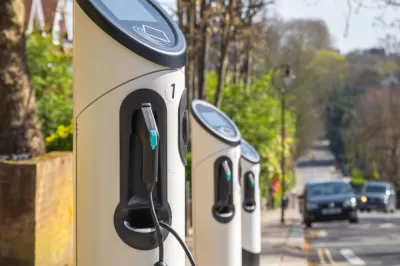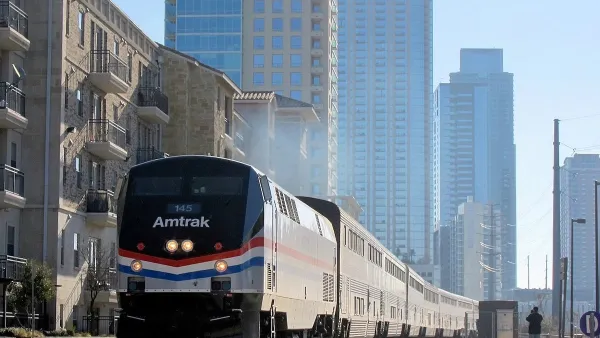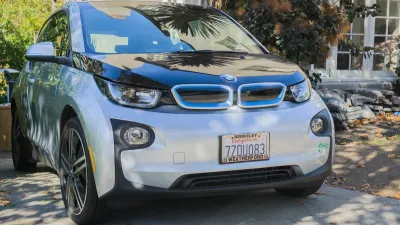A key approval from the Federal Highway Administration unlocks funding for electric vehicle charging stations and infrastructure in all states and territories.

A nationwide electric vehicle charging network is one step closer to becoming a reality after the Federal Highway Administration approved plans to unlock federal funding for all states and territories in an effort to eliminate ‘range anxiety’ and encourage faster adoption of electric vehicles.
As reported by Danielle McLean in Smart Cities Dive, “The National Electric Vehicle Infrastructure formula program created through the bipartisan infrastructure law last year provides $5 billion to states over five years to build EV charging stations every 50 miles along the federal highway system.” The recent go-ahead unlocks $1.5 million in new funds.
“Some states in their plans raised concerns about the charging station rollout, saying their power grid may not have the capacity to accommodate the growing demand for EVs now or in the future.” Under the program, states also have to cover 20 percent of build-out costs. Supporters of electrification argue that fears of grid overloads due to electric vehicles are unfounded. As Samantha Houston wrote earlier this month in a rebuttal to what she termed the fossil fuel disinformation machine,’ “there is currently enough power generation and transmission currently to serve the increase in charging load from EV purchases in the next few years, particularly if they are charged at times when other demands for power are less (such as overnight) or at times of high renewable energy generation.”
FULL STORY: EV charging network plans approved for all 50 states

Planetizen Federal Action Tracker
A weekly monitor of how Trump’s orders and actions are impacting planners and planning in America.

Chicago’s Ghost Rails
Just beneath the surface of the modern city lie the remnants of its expansive early 20th-century streetcar system.

San Antonio and Austin are Fusing Into one Massive Megaregion
The region spanning the two central Texas cities is growing fast, posing challenges for local infrastructure and water supplies.

Since Zion's Shuttles Went Electric “The Smog is Gone”
Visitors to Zion National Park can enjoy the canyon via the nation’s first fully electric park shuttle system.

Trump Distributing DOT Safety Funds at 1/10 Rate of Biden
Funds for Safe Streets and other transportation safety and equity programs are being held up by administrative reviews and conflicts with the Trump administration’s priorities.

German Cities Subsidize Taxis for Women Amid Wave of Violence
Free or low-cost taxi rides can help women navigate cities more safely, but critics say the programs don't address the root causes of violence against women.
Urban Design for Planners 1: Software Tools
This six-course series explores essential urban design concepts using open source software and equips planners with the tools they need to participate fully in the urban design process.
Planning for Universal Design
Learn the tools for implementing Universal Design in planning regulations.
planning NEXT
Appalachian Highlands Housing Partners
Mpact (founded as Rail~Volution)
City of Camden Redevelopment Agency
City of Astoria
City of Portland
City of Laramie





























